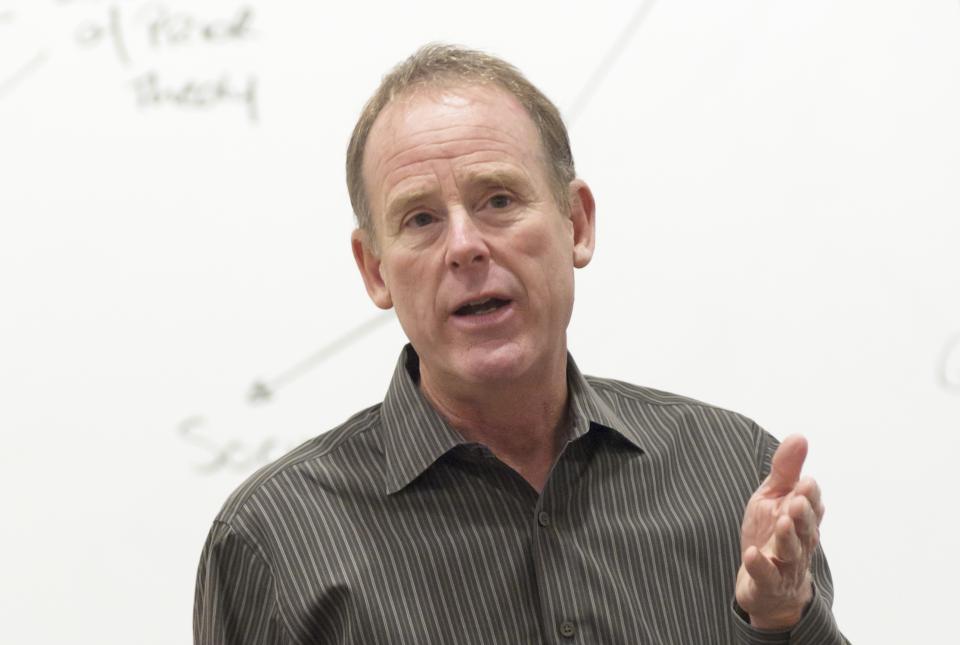"We Are GSM" Video - Meet Professor Donald Palmer

Professor Donald Palmer studies why otherwise law-abiding, ethical and socially responsible people participate in wrongful courses of behavior. His conclusions are based on an understanding of basic psychological, social psychological and sociological processes that shape human behavior.
He brings his research findings to the classroom in two courses: The Causes of Organizational Wrongdoing and Power and Influence in Management. He has written and edited works that develop theory about the causes, processes, and consequences of misconduct in and by organizations.
Introduction to Organizational Misconduct
I study misconduct in and by organizations. Misconduct is an extremely prevalent phenomenon. If you listen to the news or open up your favorite digital news source in the morning, you will probably come across at least one report on misconduct in an organization. Misconduct is consequential for organizations, especially when it's detected, it can damage the reputation of an organization which can have significant financial consequences.
The Impact of Misconduct
But they can also injure the individuals in the organizations, most obviously the perpetrators, but there have been a number of very high profile instances of misconduct lately, and I think we tend to underestimate the range of different types of misconduct. So, among the more high-profile instances are Elizabeth Holmes and Sunny Balwani’s fraud at Theranos. But there's wide range of other types of misconduct in other kinds of organizations.
Misconceptions and Risks
When we think of misconduct in organizations, we tend to imagine people who are malevolent in some way. That is, they are intentionally engaging in behavior which is designed to benefit them. And we think of those people as extraordinary different than the rest of us. And the research that I've conducted suggests that we're all at risk of crossing the line between right and wrong. And it's part of the reason why misconduct is so prevalent.
Factors Influencing Misconduct
And further, the factors that explain why people cross the line are precisely the same sorts of factors that make organizations efficient and effective. So rule following, order following, conforming to peer pressure, conforming to performance pressure—these sorts of things that are prevalent in organizations that cause people to do the right thing can also cause people to do the wrong thing.
Research Impact and Interventions
The research, which has, I think had the biggest impact, is the research which I got into quite accidentally. Since then I've written a book Comprehending the Incomprehensible. And as a result of that book, engaged in consulting work with the CDC Foundation and a team of researchers at the Johns Hopkins School of Public Health. And that work has led to interventions in youth serving organizations which are designed to curb abuse in youth serving organizations. I think I'm most proud of that work because it's the part of the research that I've done which is most linked to policy formation and interventions to reduce misconduct.